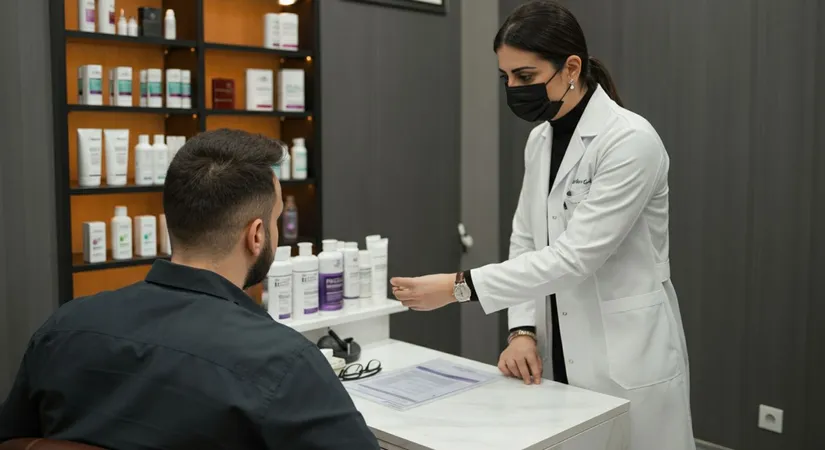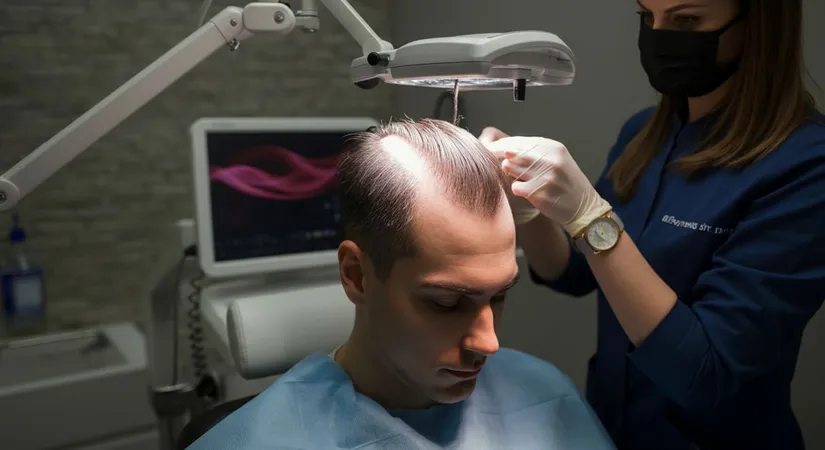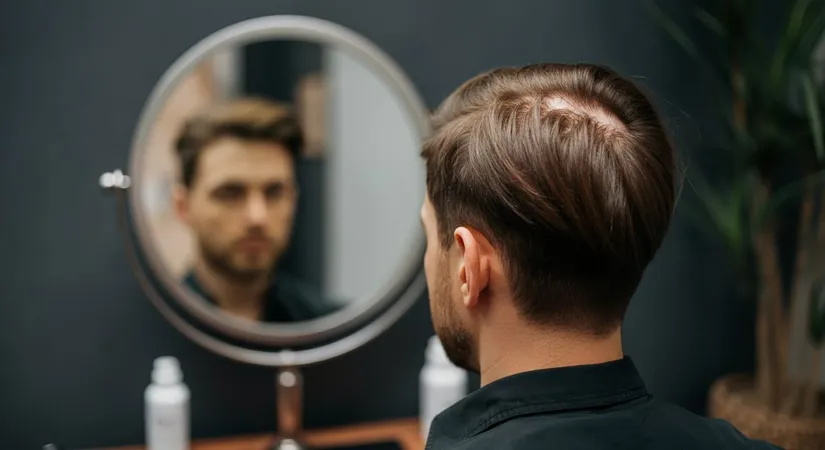Revitalize Your Look with Cutting-Edge Plastic Surgery
Delve into the top-notch hair loss treatments and find the best options to regain your confidence with healthier, fuller hair.
Discover the Best Hair Loss Treatment Options
Hair loss is a concern affecting millions worldwide, impacting confidence and lifestyle. Understanding this common issue and exploring a variety of treatment options can rejuvenate not just your hair, but your self-esteem. From medical procedures like transplants to natural remedies, there are tailored solutions for everyone.
Understanding What Causes Hair Loss
Identifying the Root Causes of Hair Loss
Hair loss can be a distressing experience, often linked to various underlying factors. Genetic predispositions, such as androgenetic alopecia, are common culprits. Hormonal changes, particularly during menopause or pregnancy, can also trigger hair thinning. Stress is another significant factor, as it can disrupt the hair growth cycle, leading to temporary or prolonged shedding. Additionally, lifestyle choices, including diet and hair care routines, play a crucial role in maintaining hair health.
Common Factors Contributing to Hair Loss
- Genetic predisposition, such as androgenetic alopecia, affects both men and women.
- Hormonal fluctuations during pregnancy or menopause can lead to temporary hair loss.
- Stress and lifestyle factors, including poor diet and hair care habits, impact hair health.
Understanding these causes is essential for finding effective solutions. For instance, addressing hormonal imbalances or adopting stress management techniques can significantly reduce hair loss. Moreover, exploring innovative treatments for losing hair can offer new hope for those affected.
Steps to Identify Hair Loss Causes
- Consult a dermatologist to assess genetic and hormonal factors.
- Evaluate lifestyle habits, including diet and stress levels.
- Consider medical tests to rule out underlying health conditions.
By systematically identifying the root causes, individuals can tailor their approach to hair loss treatment, ensuring a more personalized and effective strategy. This proactive method not only addresses the symptoms but also targets the underlying issues, paving the way for healthier hair regrowth.

Exploring Effective Treatments for Thinning Hair
Advanced Medical and Lifestyle Approaches
Addressing thinning hair effectively often requires a combination of medical treatments and lifestyle adjustments. FDA-approved medications like Minoxidil and Finasteride are widely recognized for their efficacy in promoting hair regrowth. Minoxidil, a topical solution, enhances blood flow to hair follicles, while Finasteride, an oral medication, reduces hormone levels that contribute to hair loss.
Innovative Hair Restoration Techniques
- PRP therapy uses platelet-rich plasma to rejuvenate hair follicles, enhancing growth.
- Laser therapy stimulates hair follicles, promoting thicker hair strands.
- Scalp micropigmentation offers a cosmetic solution for a fuller hair appearance.
These advanced techniques, when combined with medical treatments, can significantly improve hair density and health.
Steps to Enhance Hair Health Naturally
- Incorporate a balanced diet rich in vitamins and minerals essential for hair growth.
- Adopt stress-reducing practices like yoga or meditation to support hair health.
- Use gentle hair care products to prevent further damage and promote regrowth.
By integrating these natural methods with medical treatments, individuals can create a comprehensive approach to combating thinning hair, leading to more robust and healthier hair over time.

How Hair Transplant Works: A Comprehensive Guide
Understanding Hair Transplant Techniques
Hair transplantation is a sophisticated procedure designed to address hair loss by relocating hair follicles from a dense area to a thinning site. Techniques such as Follicular Unit Extraction (FUE) and Direct Hair Implantation (DHI) are popular due to their ability to produce natural-looking results. FUE involves extracting individual follicles, minimizing scarring, while DHI allows for precise implantation, enhancing density and alignment.
Key Benefits of Hair Transplantation
- Natural appearance due to precise follicle placement.
- Permanent solution as transplanted hair continues to grow.
- Minimally invasive with quick recovery times.
These benefits make hair transplantation a preferred choice for those seeking long-term solutions to hair loss.
Steps in the Hair Transplant Process
- Consultation to assess hair loss and determine suitable techniques.
- Extraction of healthy follicles from donor areas.
- Implantation of follicles into the recipient site for natural growth.
Each step is crucial in ensuring the success of the procedure, with skilled professionals guiding the process for optimal outcomes.

Natural Remedies to Stop Hair Loss
Harnessing the Power of Natural Oils
Natural oils have long been celebrated for their ability to nourish and strengthen hair. Rosemary oil, for instance, is known for its ability to stimulate hair follicles and improve circulation, which can promote hair growth. Lavender oil, with its soothing properties, not only helps in reducing stress—a known factor in hair loss—but also supports scalp health. Regular application of these oils can lead to noticeable improvements in hair thickness and vitality.
Dietary Changes for Healthier Hair
- Incorporate foods rich in omega-3 fatty acids, like salmon, to support scalp health.
- Consume leafy greens and nuts for essential vitamins and minerals.
- Include protein-rich foods such as eggs to strengthen hair strands.
These dietary adjustments can provide the necessary nutrients for robust hair growth, making them a vital component of any natural hair loss treatment plan.
Steps to Manage Stress for Hair Health
- Practice mindfulness techniques, such as meditation, to reduce stress levels.
- Engage in regular physical activity to boost overall well-being.
- Ensure adequate sleep to allow the body to repair and rejuvenate.
By effectively managing stress, individuals can create a more conducive environment for hair growth, as stress reduction is closely linked to improved hair health. These natural remedies, when combined, offer a holistic approach to combating hair loss, paving the way for healthier, more resilient hair.
Innovative Hair Restoration Techniques
Natural Remedies for Holistic Hair Health
Frequently Asked Questions
What are the most effective treatments for thinning hair?
How does a hair transplant work?
Can natural remedies effectively stop hair loss?
What steps can be taken to identify the causes of hair loss?
How can stress management improve hair health?
Discover the Path to Healthy Beauty with estethica's Expert Care. Call Now for Your Free Consultation!
📞 Speak with Our Specialists Today!